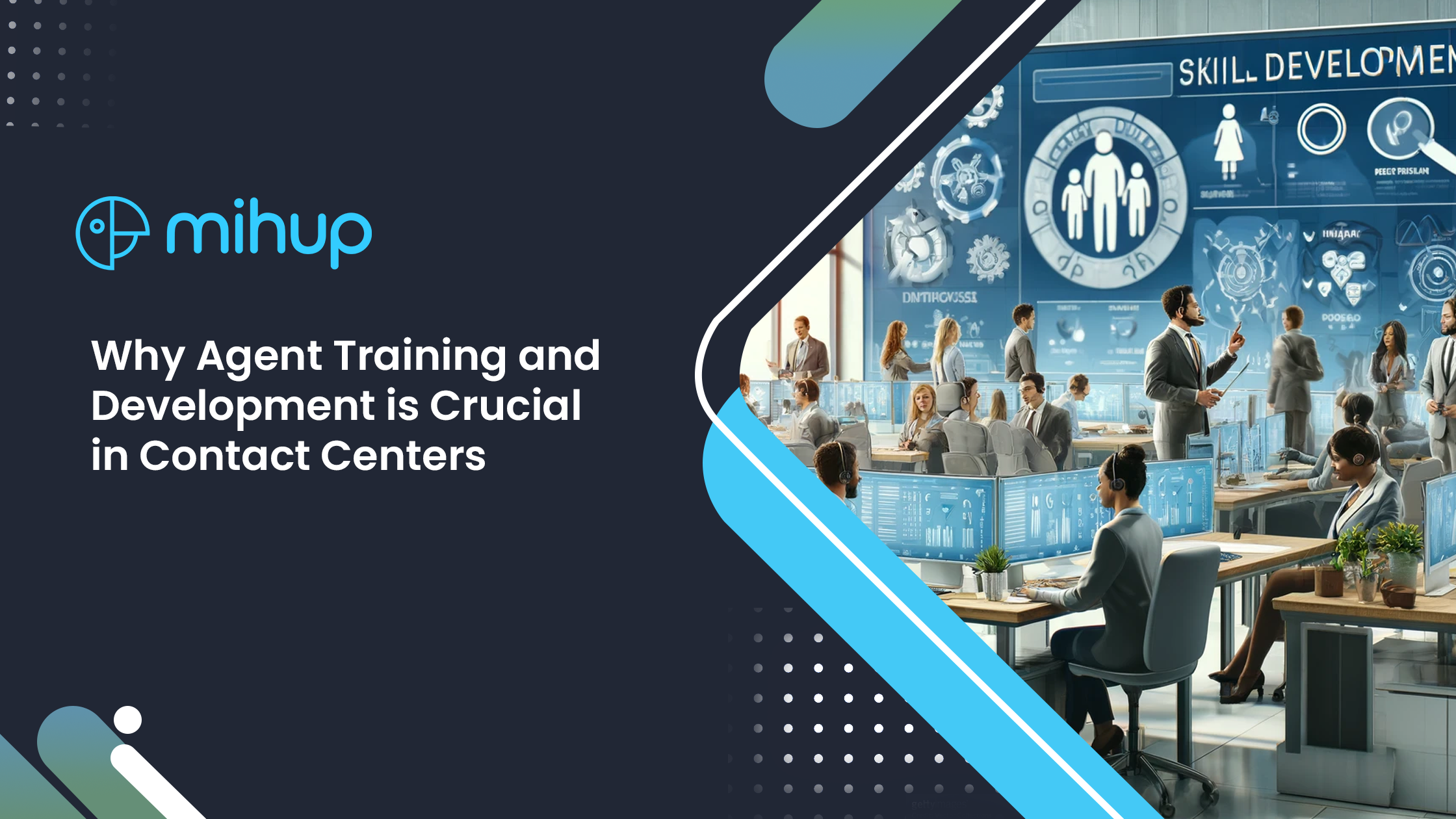In today’s fast-paced business landscape, contact centers serve as the frontline of customer interaction. They play a pivotal role in shaping customer perceptions and driving brand loyalty. As businesses increasingly recognize the value of exceptional customer experiences, the importance of well-trained contact center agents has never been more evident. In a competitive market, where customer satisfaction can make or break a company, effective call center agent training is crucial. This blog explores why agent training and development are essential for contact center success.
Enhanced Customer Experience
The primary objective of any contact center is to provide outstanding customer service. Well-trained agents are key to achieving this goal. Training for contact center agents equips them with the skills needed to effectively resolve customer issues. When agents are knowledgeable about the products or services they support, they can provide accurate and efficient solutions, leading to higher customer satisfaction.
Moreover, well-trained agents can convert more conversations into customers. Through comprehensive training programs, agents learn the art of sales and customer persuasion. They become adept at identifying customer needs and offering appropriate solutions, which can significantly boost sales and conversion rates.
Effective training also enhances an agent’s communication skills, enabling them to build rapport with customers. Building a positive relationship during interactions can lead to increased customer loyalty and repeat business. Training in active listening, empathy, and clear communication fosters positive customer interactions, creating a lasting impact on the customer experience.
Increased Agent Efficiency and Productivity
Agent training in call centers is instrumental in increasing efficiency and productivity. Training programs equip agents with the knowledge and tools to navigate inquiries seamlessly. This includes understanding internal systems, mastering call-handling protocols, and familiarizing themselves with common customer queries.
One of the direct benefits of comprehensive training is the reduction in call handling times. When agents are well-prepared, they can address customer issues swiftly and accurately, leading to shorter call durations. This not only improves customer satisfaction but also allows agents to handle a higher volume of calls, enhancing overall productivity.
Additionally, training helps agents meet performance metrics more consistently. Metrics such as first call resolution (FCR), average handle time (AHT), and customer satisfaction scores are critical indicators of a contact center’s success. Well-trained agents are more likely to meet or exceed these benchmarks, contributing to the center’s operational efficiency.
Reduced Agent Turnover and Improved Morale
High turnover rates are a common challenge in the contact center industry. However, effective training and development programs can significantly mitigate this issue. Training empowers agents by providing them with the skills and knowledge needed to perform their roles confidently. This sense of accomplishment fosters job satisfaction and reduces turnover rates.
Moreover, training plays a vital role in career development and growth opportunities. Agents who see a clear path for advancement within the organization are more likely to stay motivated and committed. Offering continuous learning and development programs demonstrates that the company values its employees and is invested in their growth.
Training also enhances overall employee satisfaction. Agents who feel competent in their roles and see opportunities for professional development are more likely to have a positive attitude towards their work. This, in turn, creates a more positive and productive work environment, benefiting both the employees and the organization.
The Power of Data in Agent Development
In the era of digital transformation, data-driven insights are revolutionizing agent training and development in contact centers. Interaction analytics, a technology that analyzes customer interactions in real-time, provides valuable insights into agent performance.
Data from real-time interactions can identify areas where communication skills need improvement. For instance, analytics can pinpoint instances where agents may not be effectively addressing customer concerns or where their tone may be perceived as unhelpful. This allows for targeted coaching and training, ensuring agents develop the necessary skills to enhance customer interactions.
Furthermore, data can highlight knowledge gaps on specific products or services. By analyzing patterns in customer queries and agent responses, contact centers can identify common areas where agents struggle. This information is invaluable for designing targeted training programs that address these gaps and improve overall service quality.
Areas of Coaching & Training
Effective coaching and training programs should cover several key areas:
- Product Knowledge: Ensuring agents have a deep understanding of the products or services they support.
- Communication Skills: Training in active listening, empathy, and clear communication.
- Problem-Solving Skills: Equipping agents with the tools and techniques to resolve customer issues efficiently.
- Sales Training: Teaching agents how to identify customer needs and offer appropriate solutions to drive conversions.
- System Proficiency: Familiarizing agents with internal systems and call-handling protocols.
- Performance Metrics: Training agents to meet key performance indicators (KPIs) such as FCR, AHT, and customer satisfaction scores.
Conclusion
The benefits of comprehensive training and development programs for contact center agents are manifold. Enhanced customer experience, increased agent efficiency and productivity, reduced turnover rates, and improved morale are just a few of the positive outcomes. As the contact center industry continues to evolve, leveraging data and analytics to inform training efforts will become increasingly important. By investing in effective training programs, organizations can ensure their contact centers are well-equipped to deliver exceptional customer service.
In today’s competitive market, the role of well-trained contact center agents cannot be overstated. To explore how data-driven solutions like interaction analytics can revolutionize your contact center training programs, consider taking a closer look at innovative tools and technologies available in the market.
Investing in your agents’ development is investing in your company’s success. Visit Mihup.ai to learn more about how interaction analytics can transform your contact center training programs and drive superior customer experiences.





